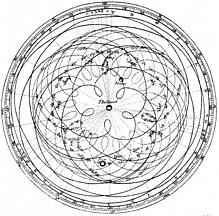Divide By Zero said:2) The source of this STS "future" is seeded in us. We could even see it as a time loop, 4d STS wouldn't exist without us and we wouldn't exist without them. Same for STO, so where is the split? Subjectivity-wishful thinking -> STS Objecivitity -> STO , Both products of intelligence and consciousness.
Psychopaths could be what they need to protect- serving a purpose to push us into subjectivity.
Psychopaths bring the conditions that make people feel like they have less and less control, like the quote from the book "Locus of control is also mediated by levels of certainty or uncertainty in physical and social environments. "
If things below the surface are strange, like quantum theory shows, it makes sense why "they" would want to control consciousness by keeping us "dreaming" of subjective reality (improbable possibilities?). Of course from our level of STS existence, what we see as probable are the cycles of destruction and rebirth that we some how want to overcome. Maybe objectivity is accepting this happened, happens, and will happen? So STS could be born of the fear of this loop, which makes them create time/space loops in order to "fix it" (but it is not broken!).
I found this is a very interesting thinking, especially the last part where i can see some pretty insights. In the first part, i found the way to describe STS vs STO too simple and maybe erroneous (in a general way, i find that focusing on this STS vs STO dichotomy is dangerous, that leads to some hard inside conflicts that does not really helps). To me, the error is this brutal dichotomy between "subjective" and "objective" wich can lead to some other illusions. Being "wishful thinking" is one feature of the self-contentment logic, wich does not mean this is THE key feature. Respecting what you write above, what happen if you take the "reach for objectivity" as an ultimate goal ? Then you are never satisfied, and you allways want more knowledge, you try reach some "ultimate knowledge" and you enter in a kind of infinite loop (especially if you create your own reality). And what if being "objective" is to understand you can't be it, admiting you only can be subjective with maybe, some better view than the one who is purely in a self-made (or made by another) dream ? Lets go further: If you observe how our current world works, with its propaganda and social ingeniering process, what is the goal of some "powerfull" people ? Answer: Make you enter in THEIR "dream", in their "false world", so you are like in "The Matrix": the "Matrix" they built, for you, where they control your believes, your will, what you are supposed to want, to like, or dislike => "yes, you want this fabulous car, this car is what you need !" => "yes, you want to go in 4th density STO, this is what you need !" (controversial example, done on purpose).
Anyway, before thinking about some world destruction by comets, and maybe some "density switching", i would advise to first begin to see the potentiality of an global economic collapse, which mechanically will not affect only the "elits", and maybe, even "elits" will deliberatly provoke him, to achieve their NWO agenda: they have power... you, no. What can happen is such situation (think about people beg for some fresh water, food, etc.) ? What to do to prevent the worse ? What to do to keep your freedome ?

